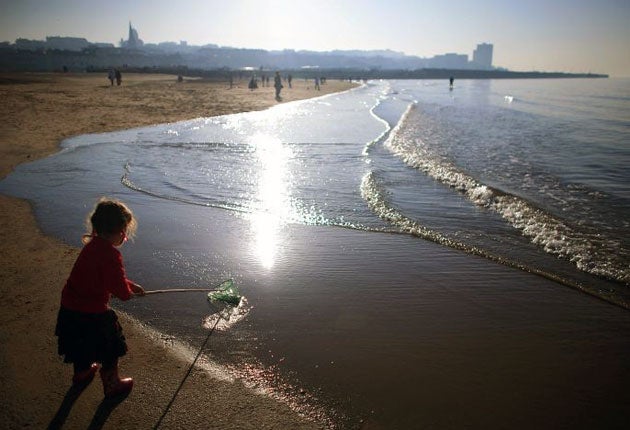Tourist numbers fall for first time in seven years
Economic downturn blamed for 17% drop in visitors from the US

Your support helps us to tell the story
From reproductive rights to climate change to Big Tech, The Independent is on the ground when the story is developing. Whether it's investigating the financials of Elon Musk's pro-Trump PAC or producing our latest documentary, 'The A Word', which shines a light on the American women fighting for reproductive rights, we know how important it is to parse out the facts from the messaging.
At such a critical moment in US history, we need reporters on the ground. Your donation allows us to keep sending journalists to speak to both sides of the story.
The Independent is trusted by Americans across the entire political spectrum. And unlike many other quality news outlets, we choose not to lock Americans out of our reporting and analysis with paywalls. We believe quality journalism should be available to everyone, paid for by those who can afford it.
Your support makes all the difference.The number of people visiting Britain has fallen for the first time in seven years.
There were 31.9 million visits to the UK in 2008, a fall of 860,000 (2.7 per cent) on the previous year, according to the figures from the Office for National Statistics. Analysts blamed the drop – the first since a decline in visits after the 11 September 2001 terror attacks – on the recession.
"The information we have is that, because of the economic downturn, people do not feel they have the money to make long trips," said Elliott Frisby of Visit Britain, the national tourism agency. Both French and Irish visitors to Britain outnumbered the Americans for the first time in over a decade. The number of US travellers making the trip across the Atlantic fell sharply by 600,000 to 3m.
"The French and Irish overtaking the Americans as our most frequent visitors is not unprecedented but it is certainly the first time it has happened since 1997," said Mr Frisby.
"The weak pound and the short distances make it much easier and more attractive for the likes of them to travel to the UK at the moment."
The total revenue from tourism and business trips to Britain actually rose, by 2.3 per cent on the previous year, to £16.3 billion.
Mr Frisby warned that this trend may not last: "It is interesting to note that more and more Eastern Europeans and East Asians are visiting. Our research suggests that people are taking shorter breaks here and will not spend quite as much money.
"The days of American tourists taking two-week-long holidays are over. The trend for 2009 is towards short breaks and that may mean less money will be spent here."
Mr Frisby also claimed that environmental awareness was "undoubtedly" a factor in the decline of travel to Britain.
The managing director of Travelodge, Guy Parsons, accused the Government of showing a lack of support to the tourism industry.
"Despite the decline of sterling making the UK a leading value destination for foreign visitors in 2009, the lack of Government support for the tourism industry has led to these disappointing numbers," he said. "It would be a waste if we look back on the year as one of missed opportunity for the industry – yet unfortunately the lack of foreign visitors arriving here makes that view likely."
London remained the top destination for overseas visitors with 14.8m trips to the capital last year, a 3.8 per cent fall on 2007.
Edinburgh was the second most visited British city, with 1.2m visits, Manchester had 900,000 visits, Birmingham with 800,000 and Glasgow with 600,000.
Visits to the UK were divided evenly between those on holiday, those visiting friends and family and people on business trips.
31.9m
The number of foreign visitors to Britain last year, down 860,000 on 2007.
Join our commenting forum
Join thought-provoking conversations, follow other Independent readers and see their replies
Comments